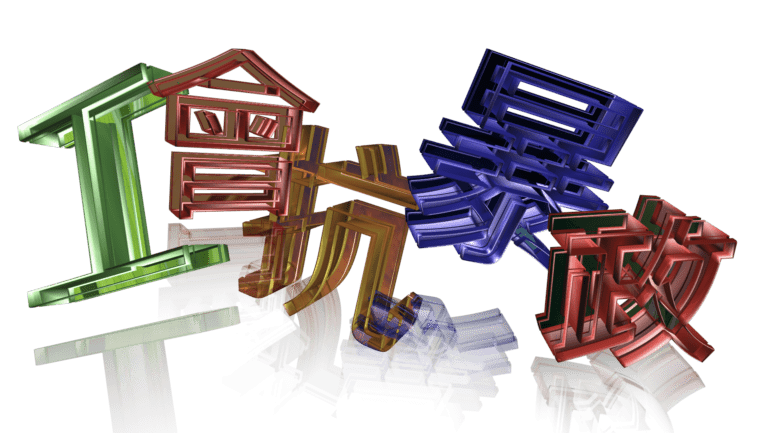Original: 【工盟解散,不重要,重要的是公民社會會不會解散】, published on HKCTU’s Facebook page.
Author: 拔, A CTU Cleaning Workers’ Union Officer
Translator: rinpyoto
Editor’s Note: This is the third in our series of translations of short letters and statements from members of HKCTU that were posted on their Facebook page upon the news of their disbandment on September 17, 2021 due to increasing repression and harassment from pro-Beijing media and the Hong Kong government. We share these translations here to preserve the history of the city’s progressive and independent unionism and to honor HKCTU’s decades of organizing and struggle to better the lives of Hong Kong workers.
After resigning from the district council office, I turned to work at the Confederation of Trade Unions on September 1. In half a month, I was informed that the Hong Kong Confederation of Trade Union’s (HKCTU) Standing Committee had proposed a motion to dissolve. (I must emphasize here that as long as we have not held a general meeting and passed a motion, we cannot say that we are officially dissolved.)
Before the news came out, some colleagues and workers would ask why I had joined the HKCTU at this time. In my heart, I could not admit defeat.
Whether I was working at the district council office or with the union, it was merely a form of title to me. What I wanted was to be able to organize. I was frustrated upon hearing more news of the disqualification of district councillors across Hong Kong, which seemed to signify an end to community work and all the relationships that had been built with community members over the years. I couldn’t accept that the National Security Law went beyond the Shenzhen River and into Hong Kong, which shut down diverse voices of public discussion and ended our right to protest on the streets. Ultimately, all we wanted was to find a space where we could comfortably express ourselves.
When I was still a student in 2017, my university and its external contractors were trying to evade severance payments to workers. The university believed in outsourcing labor and exploiting contracted workers. This was when my friends and I approached our acquaintances at HKCTU to discuss how to organize severance actions, which marked the beginning of my involvement in labor organizing.
Later on, when employees in a shop run by the pro-CCP Fulum Group were put on no-pay leave, not given notice to start work, and not given severance pay, we approached our friends from HKCTU to pursue the matter together. With the support of HKCTU, we assisted the workers who did not know how to express themselves as HKCTU representatives by answering the questions of the adjudicator at the Labor Tribunal, and eventually we were able to get back the full amount owed to them.
In addition to the cooperative relationship I had with it in the past, I felt that HKCTU shared my beliefs. More importantly, HKCTU was tenacious even in the face of the National Security Law—on May 1, June 4, July 1 and July 21, when almost all organizations spoke up less, the CTU was the only one bold enough to hang its flag on the Mong Kok Bridge, bold enough to speak out loudly. They continued to say what they believed in.
In the labor movement, it is often said that “unity is strength,” which seems so naive to say, but it is true. It’s not that if you unite, you will definitely recover, but that we all need friends. We are all weak, and we are afraid when we are alone, but if you have just one more person with you, then the fear will be considerably diminished.
Before 2019, I was lonely because there were very few people who were involved in political organizing, and when I talked to my friends about current affairs, I appeared different. But after 2019, I’ve felt even lonelier because there is no way for people who organize politically to be seen, nor can they see others—unless they’re in prison.
The movement often talks about what is “being seen.” What can be seen are those marginalized issues, people and things that normally cannot be seen in everyday life. You may ask, what is the point of “being seen?” The fact is that the movement over the years has not brought about any real results, right? But I think the point of “being seen” is not to make anything happen, but to make people less lonely and to let them know that their efforts are not foolish and in vain.
So back to my main point—joining HKCTU is not about wanting to join , but about wanting to continue to participate in and expand the labor and social movement, so as to build something for civil society.
If HKCTU really has to disband, would it be catastrophic? Workers would have no one to turn to, societal fear would expand, and marginalized people would be even less visible…
To say “no” would be a lie, and to say that there are impacts would be true, but it would certainly not be the end.
What matters isn’t that HKCTU gets disbanded (I hope my colleagues don’t beat the shit out of me for saying this), what matters is that civil society will not disband. Organizers and social activists have been working hard during the social downturn. We are trying to open up a front line across different domains. If we fall down this time, can we all step up?
A HKCTU Sanitation Workers Union Organizer
Written on the 30th day of employment
#TillOurNextReunion #TheEndingIsTheBeginningofEverything #TellingthestoriesofHongKongfromyouandI
#CTU #NotDisbanded #CTU30years
#Whenwillweback #hkctu30#SolidarityWithHKUnions #WeLoveFreedomInHK
從議辦離職後,輾轉間到工盟,九月一日入職,半個月就獲悉常委會提出解散議案了。(在此必須強調,一日未開會員大會,一日未通過議案,一日都不能說是正式解散。)
消息未傳出前,已有同事、工友會問,怎麼在這個時候才加入工盟呢?不甘心呀。
做議辦、做工盟,於我而言都是牌頭而已,重點還是想做組織。不甘心一個 DQ 消息傳出,社區工作就此結束,建立多年的街坊關係就此完結。不甘心一個國安法跨越深圳河,公共討論多元聲音就此收皮,街頭行動就此畫上休止符。說到底,都只是想尋找一個可以讓自己舒適地說想說的話的空間而已。
我和工盟的關係不是始於今年,在更早的 2017 年時,當我還在讀書時,面對院校內外判商意圖逃避遣散費,校方篤信外判、力行剝削時,我和友人們就是找工盟的朋友一起搞追討行動,這是我的工運參與的開始。
後來,在議辦時,有在藍店富臨工作的街坊被放無薪假而一直不獲開工通知,又不獲遣散費,當時我們就是找上工盟的朋友一起搞追討,亦因為有工會的支援,以工會代表身份協助不太懂得表達的工友在勞資審裁署上回答裁判官的問題,最終才可取回全數。
除了過去的合作關係讓我感受到工盟與我的理念一致外,更重要的是我看到在國安法壓境後,工盟的韌性——在五一、六四、七一、七二一這些日子裏,近乎所有組織都要少說一點說話時,只有工盟夠膽大大支旗掛在旺角橋上,夠膽大大聲地繼續說自己相信的事。
工運中常說甚麼「團結就是力量」,說出來好像好天真,但那是真的。不是說,只要團結,就一定能光復,而是在說,人類都是需要朋友的,我們都弱小,一個人時會恐懼,但那怕只有多一個人和你一起,那麼恐懼大概會少了至少一倍。
在運動中大部份時間都很孤獨,2019 年前很孤獨,因為搞運動的人很少數,跟朋友談起時政,都顯得異類。但 2019 年後更孤獨,因為搞運動的人都無法被看見了,或是看得見,但只能在獄中見。
運動中常說甚麼「被看見」,被看見的是那些邊緣化的議題,主流生活中看不見的人和事,可能你會說「被看見」有甚麼意義?事實上就是多年來的運動沒帶來甚麼實際成果呀?是啊,當然,咁易就得早就光復了,但我認為「被看見」的重點其實不是讓甚麼事情要實現,而是要讓大家不那麼孤獨,讓大家知道自己的努力不是憨鳩的。
所以回歸主題,加入工盟不是想要加入工盟,而是想持續在工運、社運裏參與、推動甚麼,而是想繼續為公民社會建立甚麼。
如果工盟真的要解散,是不是就很大鑊?工友求助無門、社會恐懼擴大、邊緣化的人更不被看見⋯⋯
說「不是」就是假的,有影響就是真的,但這必然不是終結。
工盟解散,不重要(希望同事唔會打柒我),重要的是公民社會會不會解散。組織者、(社會)運動員在社會低潮時其實一直都有在努力,那時候我們嘗試在各領域打開一線空間,今次假若我們倒下了,大家可以頂上嗎?
清潔服務業職工會組織幹事
寫在入職的第三十天
#下一次再聚 #序是一切的開始 #敍述你我與香港的故事#職工盟 #未散 #職工盟30年




